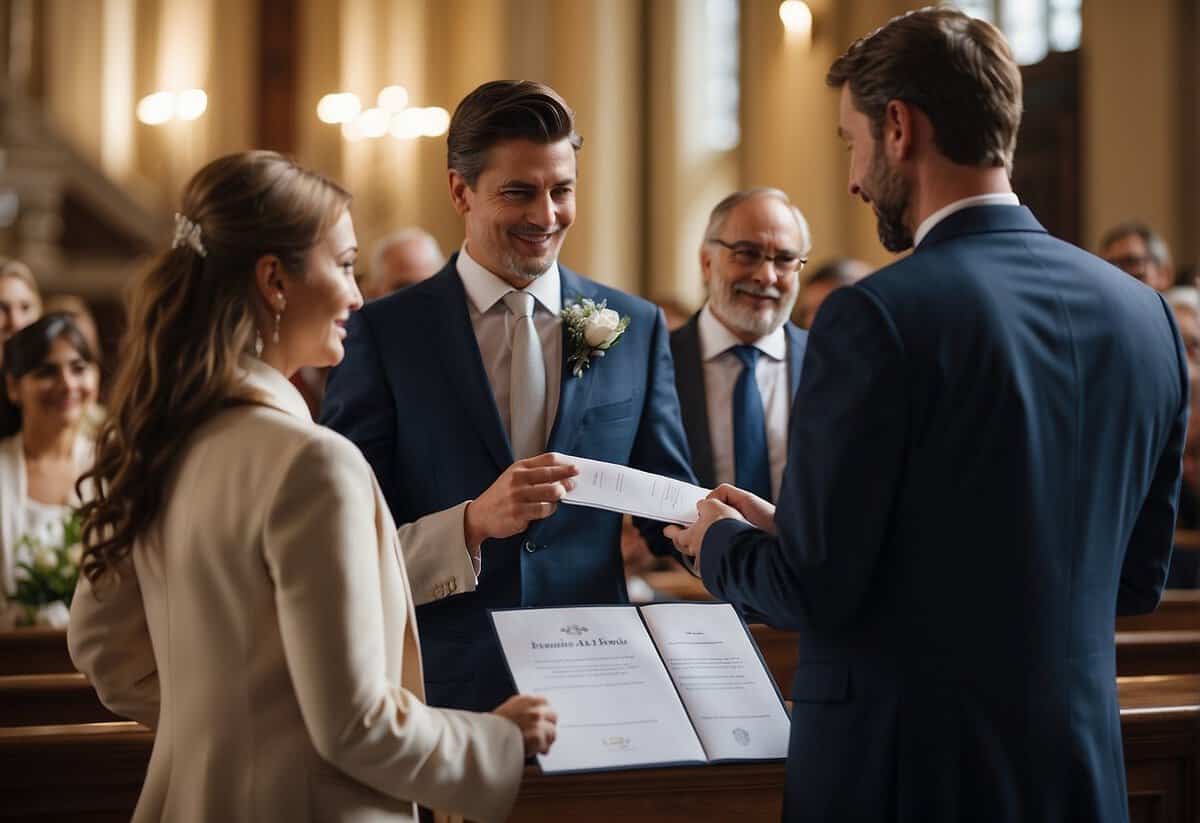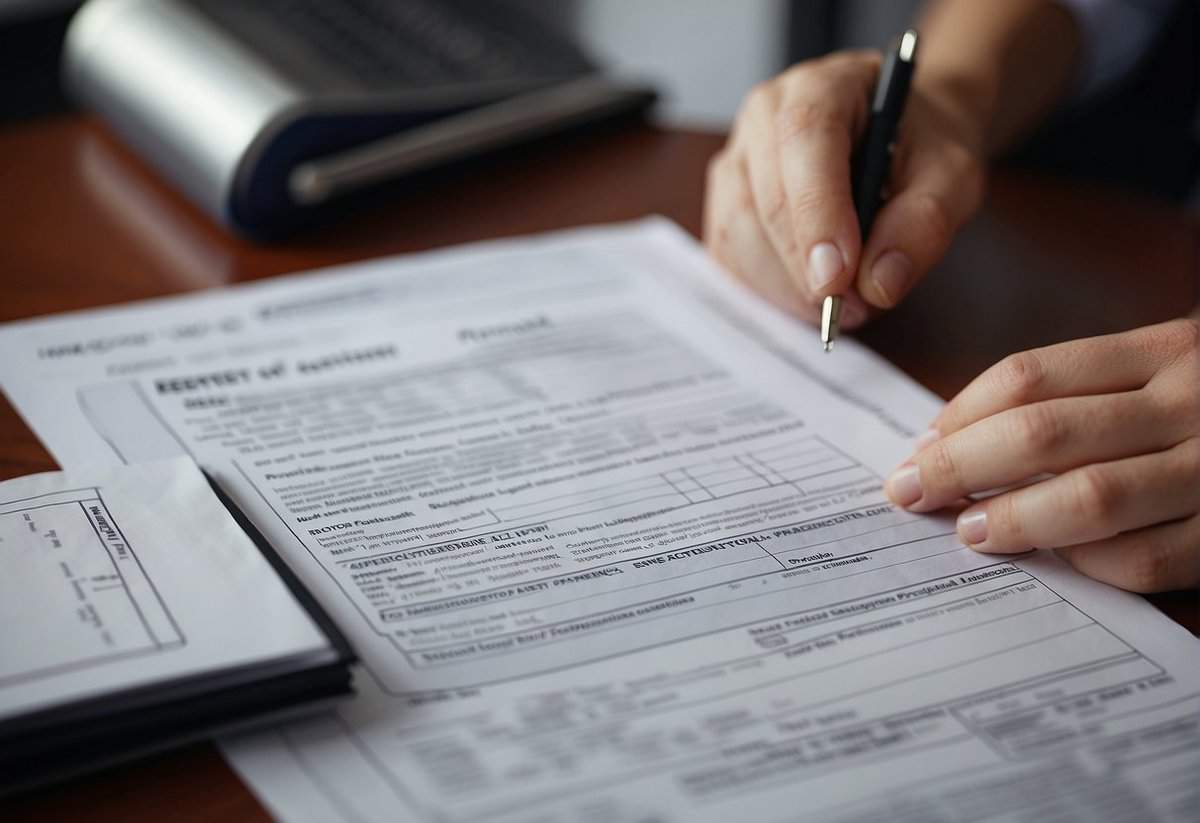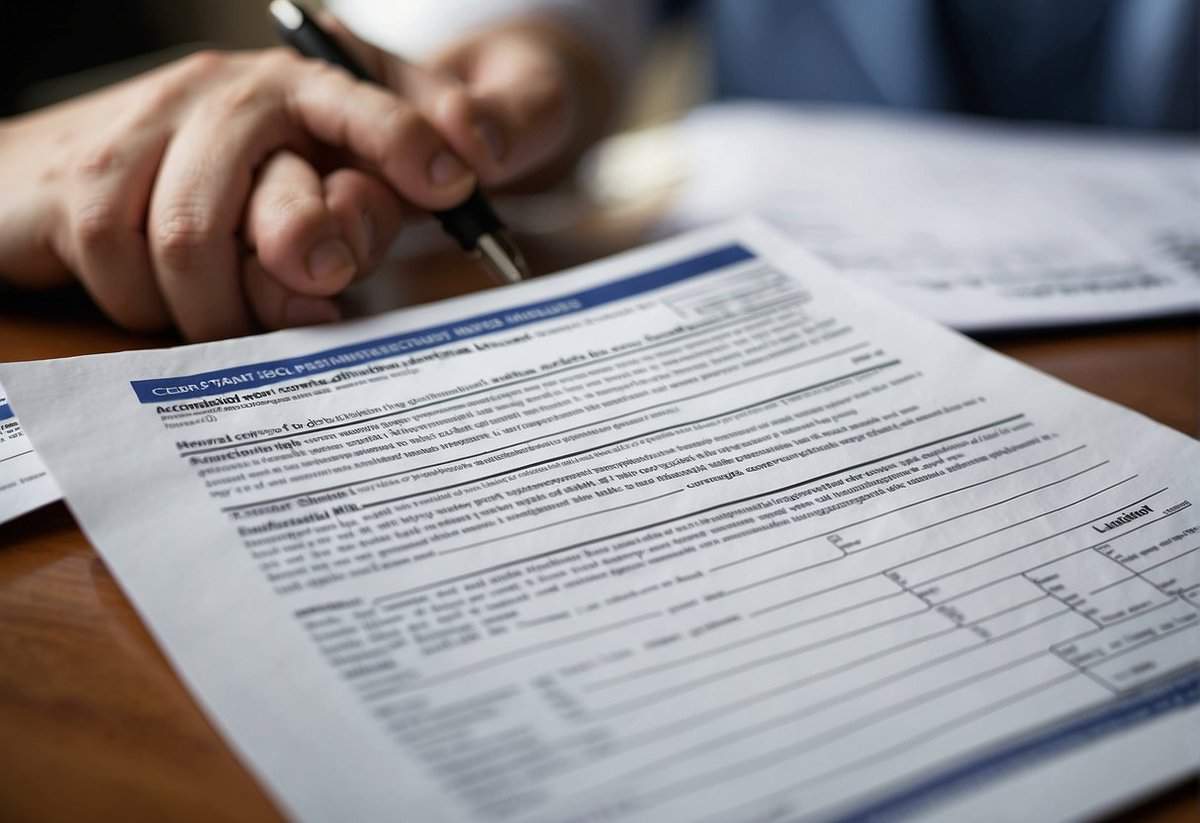How Do I Get a Free to Marry Certificate in the UK: Easy Steps to Follow
When planning a wedding in the UK, it’s crucial to understand the legal steps involved to ensure your nuptials are recognized by law. One essential document you might need, particularly if you’re planning to marry abroad, is a ‘Certificate of No Impediment’, also known colloquially as a ‘Free to Marry’ certificate. This certificate proves that you are legally free to marry, which is especially important if you or your partner are a foreign national or if the marriage will be conducted outside of the UK.

Applying for this certificate involves a specific procedure. You’ll need to give notice of your marriage at your local register office. This process typically requires you to present valid identification and provide evidence that you have lived within the area for at least seven days. The application procedure and wait times can vary; it’s essential to start the process well in advance of your planned wedding date, particularly if you’re marrying overseas, as different countries have distinct requirements.
Key Takeaways
- A ‘Free to Marry’ certificate confirms you are legally allowed to marry.
- You must give notice at your local register office in the UK before obtaining the certificate.
- Start the application well ahead of your wedding, especially if marrying abroad.
Understanding the ‘Free to Marry’ Certificate

When planning to marry abroad, you’ll often be required to prove that you’re legally free to do so. The ‘Free to Marry’ Certificate, also known as a Certificate of No Impediment (CNI), is essential in making this process smooth and clear.
Definition of Free to Marry
Free to marry refers to your legal standing of being eligible to enter into marriage. This means you’re not currently married, or if you have been previously married, you’re either divorced or widowed. In the UK, you can prove you’re free to marry through a Certificate of No Impediment, which is an official document stating there are no legal obstacles to your marriage.
Certificate of No Impediment (CNI)
Obtaining a Certificate of No Impediment involves giving notice of your intention to marry at your local register office. The purpose of the CNI is to formally record that no one has raised any legal objections to your proposed marriage. To apply for a CNI, you’ll need valid identification and, if applicable, evidence of the end of any previous marriages, such as a divorce decree or a former spouse’s death certificate. After a set period, usually about 28 days, if no impediments are recorded, you’ll be issued with your certificate, enabling you to marry overseas.
Application Procedure for UK Residents

The journey to obtaining a free to marry certificate in the UK involves several steps, including determining the right authority, gathering necessary documents, and officially giving notice. Let’s get started on the specifics for UK residents.
Identifying the Proper Authority
To begin your application for a Certificate of No Impediment (CNI), which is the official ‘free to marry’ document, you need to identify the proper local authority. In England, Wales, and Northern Ireland, this will generally be the local register office in the area where you reside. For British nationals living in the UK who plan to marry abroad, it’s also a good idea to check the gov.uk website for country-specific information as requirements may vary.
Required Documentation
Gathering the correct documentation is vital for a hassle-free application process. Your local register office or the General Register Office will usually require the following documents:
- Proof of identity (e.g., passport or driver’s license)
- Proof of residence (e.g., utility bill or bank statement)
- Details about your upcoming marriage or civil partnership, such as the venue and date
Be sure to have all documents in order as incomplete paperwork can lead to delays. When planning a marriage abroad, certain countries may require additional specific documents; you can find guidance for this on the relevant embassy website.
Giving Notice at the Register Office
Giving notice is a public declaration of your intention to marry. You must book an appointment at your local register office and attend in person. Here’s what to keep in mind:
- Give notice at least 28 full days before your ceremony.
- You and your partner must have lived in the UK for at least 7 days before giving notice.
- A fee will be payable at the time of giving notice.
- You’ll need to bring your witnesses, who must be eligible to legally witness the notice.
This notice will then be publicly displayed at the register office for 28 days. After that period, if there have been no objections, your CNI will be issued, and you’re one step closer to saying “I do.” For even more specific information tailored to your local area, your local authority will be your go-to source for the nitty-gritty details.
International Considerations and Marriage Abroad

When planning to marry abroad or to a foreign national, it’s crucial to understand how UK law intersects with international regulations. You’ll need to navigate everything from legal recognition to specific documentation.
Marrying a Foreign National
If you’re a UK citizen looking to marry a foreign national, UK law requires you to obtain a Certificate of No Impediment (CNI), also known as a ‘free to marry’ certificate. This document serves as proof that you’re legally free to marry. You should contact your local register office or consulate to start this process. It’s also wise to seek legal advice if you or your partner are subject to immigration controls or visa requirements.
Recognising Overseas Marriages in the UK
Once you’re married, UK law will recognise your overseas marriage as long as it’s legally valid in the country where it took place and would be permissible under UK law. This includes both civil marriages and religious ceremonies, and applies to same-sex couples too. If the local law allows, you could marry in a British Embassy or High Commission. To ensure the marriage is recognised, you must follow the local laws and hold the ceremony at approved premises.
Getting Married in a Foreign Country
To marry in a foreign country, start by checking the specific requirements of that nation, which could include residency periods or specific documentation like birth certificates or divorce decrees if previously married. Your marriage ceremony must also meet the local definition of a legal marriage. Some countries might require a final order, ensuring any previous marriages have been legally ended. It’s advisable to contact the local authorities or the nearest British Embassy or consulate for details on the procedure. Be aware that a visa might be required to enter the country for the purpose of getting married.
Special Circumstances and Additional Information

When preparing for your wedding in the UK, it’s crucial to be aware of certain special circumstances that might apply to you. Depending on your age, your nationality, or the uniqueness of your ceremony, there may be additional steps to ensure your marriage is legally recognized.
Underage and Special License Marriages
If either you or your partner is under 18 years old, obtaining consent from your parents or guardians is a must. In the UK, the minimum age to marry is 16 with consent. However, if you’re between 16 and 18, you might also require a special license issued by the court, especially if you’re not marrying in a religious ceremony within a recognized Church such as the Church of England or Church in Wales.
Special licenses are also considered for those who are seriously ill and wish to get married without delay, or if you’re planning a ceremony in approved open air venues. Same-sex couples can also have their ceremony in a myriad of venues, but might need to check specific rules that apply to them, ensuring the chosen venue is licensed for same-sex weddings.
Preparing for the Wedding Ceremony
Before your big day, you’ll want to connect with your local registrar or a religious official if you’re having a Church of England or Church in Wales ceremony. For a marriage to be recognized, you will need to have banns read or attain a marriage schedule from the district where you are a resident. Foreign nationals from outside the European Economic Area (EEA) and Switzerland must provide a certificate of no impediment (CNI) or be under the EU Settlement Scheme to get married in the UK.
For civil ceremonies, book a wedding venue that’s recognized as an approved venue—this could be a castle in London or a myriad of other beautiful wedding venues across the UK. If you’re having a Jewish or Quaker ceremony, these do not require a civil license, but it’s wise to acquire all necessary paperwork ahead of time. In every case, the wedding costs should be considered early on, including the fees for submitting the required documentation. Remember that every religious building has its own process, but in general, showing a connection to the church or religious community plays a pivotal role in streamlining your path to getting hitched.
Frequently Asked Questions

Navigating the requirements and processes for marriage in the UK can be straightforward once you’re aware of the necessary certificates and procedures. Here’s a quick guide to answer your common queries.
Do I need a Certificate of No Impediment to marry in the UK?
Yes, if you plan on marrying abroad or if you’re a foreign national looking to marry in the UK, you may need a Certificate of No Impediment to prove there are no legal obstacles to your marriage.
How can I apply for a Certificate of No Impediment online in the UK?
To apply for a Certificate of No Impediment, you typically need to give notice of marriage at your local register office. For an online application process, you should check the specific guidelines that can vary depending on your location within the UK.
Is there a way to fast-track a Certificate of No Impediment in the UK?
There is no standard fast-track option for obtaining a Certificate of No Impediment in the UK. You must follow the given timelines, which usually involve a waiting period after giving notice.
What are the steps to register a foreign marriage in the UK?
To register a foreign marriage, you should contact the General Register Office in the UK. They can provide information on whether you need to register the marriage and what documents are required.
How can I obtain a copy of my UK marriage certificate?
You can order a copy of your UK marriage certificate online from the General Register Office. You’ll need to provide the necessary details about the marriage and pay a fee.
What fees are associated with obtaining a marriage certificate in the UK?
The cost for a standard marriage certificate in the UK is £11. If you require additional services, such as a decorated certificate or an apostilled copy for international use, there may be additional fees.

